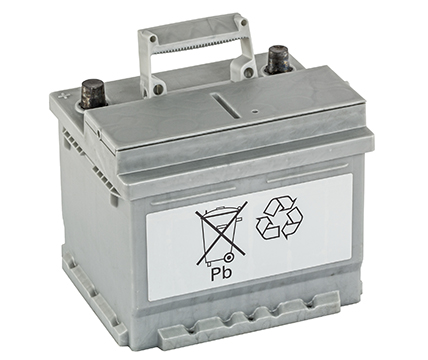A lead-acid battery paste recycling technology that is cheaper and cleaner than traditional methods, developed by Dr RV Kumar and his research team of the Materials Science Department at the University of Cambridge, has been licensed to Aurelius Environmental (AE) in the West Midlands.
The technology, which has the potential to transform the battery recycling industry (a $14 billion market), aims to be the most complete closed-loop recycling system in the world, providing significant cost reductions in the lead-acid battery manufacturing supply chain. The technology offers key features compared with traditional recycling methods, including:
- lower capital equipment costs (approximately 15 percent of conventional recycling costs), making the process economical at both a large and small scale
- a cleaner process, with low (near zero) emissions and a carbon footprint of less than 15 percent of incumbent recycling techniques
- 500 Kwh of energy produced per tonne of batteries recycled
- a tunable mixture of lead and lead oxide, not only simplifying the process of making new battery paste but improving the electrochemical properties of the new battery paste by up to 30 percent.
We are very excited to enter into a licensing and consultancy agreement with Cambridge Enterprise and Dr Kumar of the University of Cambridge to develop a new clean, energy efficient and low environmental impact process for the production of battery grade products from the recycling of lead acid batteries.
Miles Freeman
The technology is licensed to AE by Cambridge Enterprise, the commercialisation arm of the University of Cambridge.
AE supports customers ranging from smaller battery manufacturers and recycling companies, to large multi-nationals; the business model for its deployment makes it accessible to emerging and developing economies such as India and China, where lead pollution from the informal recycling sector, and old technology plants, are reported to be a major problem.
Miles Freeman, Chief Officer at AE, said: “We are very excited to enter into a licensing and consultancy agreement with Cambridge Enterprise and Dr Kumar of the University of Cambridge to develop a new clean, energy efficient and low environmental impact process for the production of battery grade products from the recycling of lead acid batteries.”
Dr Kumar and his team have proved the process as a laboratory technique in the past, routinely converting hundreds of grams of battery paste to a mixture of leady oxide within a few hours, which is the precursor for making a new paste.
AE now plans to build a pilot plant that will be operational by the third quarter of this year and will look to process up to two tonnes of batteries per day to provide technical information on optimum process designs, requirements and costs. It plans to scale this process to upwards of 10,000 tonnes in 2017 and 25,000 tonnes by 2018.
The cost of this development project is estimated at £500k.
AE has secured supply chain partners for battery wastes and is working with other local businesses and partners.











